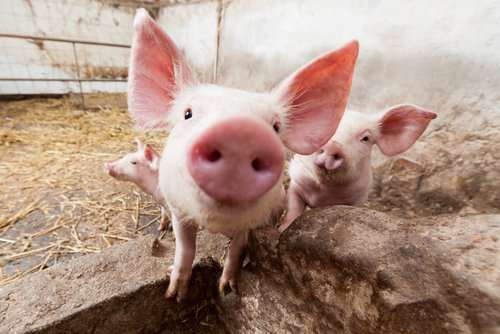
The team discovered microscopic lesions on the pigs’ central nervous systems. The lesions contained a sapelovirus. This virus is common in pigs, but the strain found in this particular research was different than the strain typically found.
“We’re collecting evidence, sort of like in a forensic investigation,” Arruda said in a release. “But we still have a lot of questions that need to be answered about this virus.”
Arruda said the researchers aren’t sure the virus is responsible for the lesions and a lack of scientific evidence makes it difficult to understand how widely it can spread.
Arruda also said hog farms dealing with the disease could lose up to two per cent of their livestock, but there’s no evidence the virus makes pork unsafe for human consumption.